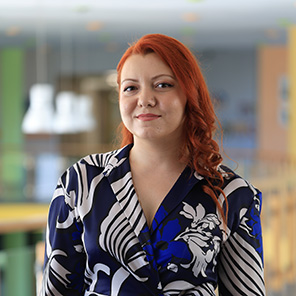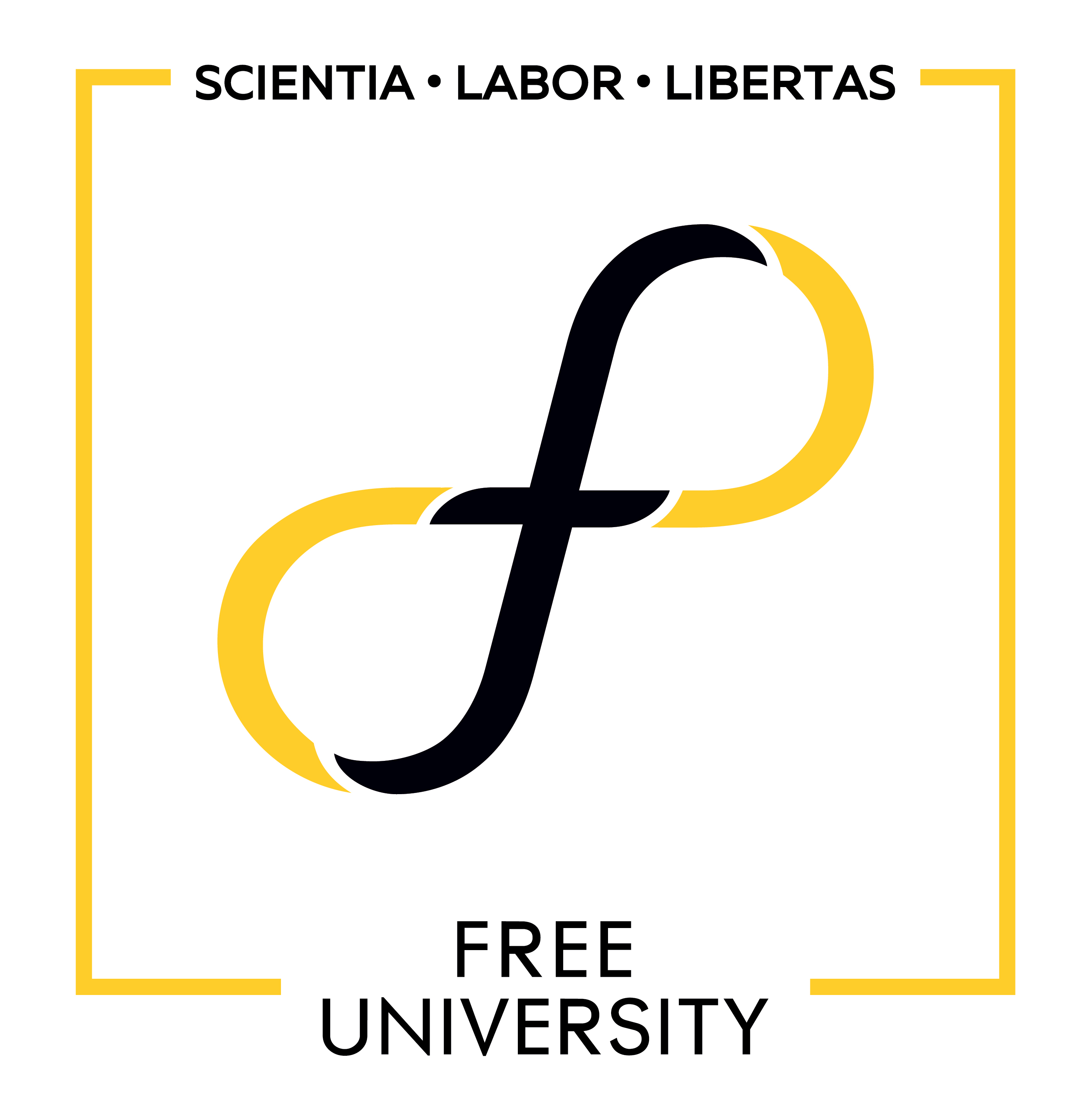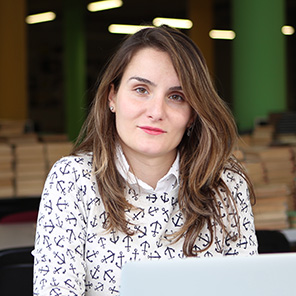GRADUATE SCHOOL OF SOCIAL AND NATURAL SCIENCES
Joint Master’s Program in Natural Sciences - Description
The Joint Master's Program in Natural Sciences is implemented by the Free University of Tbilisi and the Agricultural University of Georgia.
The universities exceptional resources (highly qualified faculty, state-of-the-art facilities, international connections) that allow them to collaboratively prepare master's candidates in biology, chemistry, and physics.
With combined resources, the Free University of Tbilisi and the Agricultural University of Georgia create a unique environment for conducting research and educational activities in accordance with international standards, as well as for fostering interdisciplinary studies.
The program is founded on high standards of learning and modern practices, namely:
- Internationalization - the Joint Master's Program in Natural Sciences is crafted to align with international standards and industry demands. Throughout the program's development, successful models from both the US and Europe were examined and taken into consideration. Drawing from these models, the curriculum emphasizes an individualized approach to education and is therefore designed to accommodate a limited number of students. The program's faculty comprises top scientists in the country with extensive experience in overseeing Master's and PhD studies. Additionally, they actively engage in scientific collaborations with prominent foreign research centers and institutes, providing a robust foundation for the program's success.
- Research-Orientation - the Joint Master's Program in Natural Sciences is designed as a teaching and research-focused initiative, aligning with the Europe 2020 strategy for higher education modernization. A key objective of the program is to empower master's students to conduct research at international standards. To achieve this, both the content and structure of the program are crafted to emphasize in-depth exploration of research problems chosen by students based on their interests, with the active support of advisors.
- Action-Oriented Learning - the Free University of Tbilisi and the Agricultural University of Georgia prioritize action-oriented learning (learning-by-doing). Teaching laboratories facilitate this approach, enabling students to learn by actively engaging in laboratory work. Each student has their own workspace equipped with the necessary tools for hands-on learning, thus improving students' learning outcomes.
- Individualized Approach - the program offers a curriculum designed with an individualized approach, providing a wide range of course choices. Over half of the program's credits are allocated to practical and laboratory courses customized to the individual interests of each student. This individualized approach entails that:
a) In preparing the Master's Thesis, each student engages in intensive work beyond the course load, guided by tutors, under the direct supervision of their advisors and with the assistance of ongoing consultations from other academic staff involved in the program.
b) In addition to mandatory courses, students are given the opportunity to draw up their own study plans (based on the advisor's recommendation) aligned with their research interests. This applies to both elective courses and optional laboratory work (in the case of biology-chemistry).
Such an individualized approach implies that several faculty members are consistently involved in the teaching and research activities of each master's student.
Upon successful completion of the program, the graduate is awarded one of the following qualifications, depending on the specialization:
- Master of Physics
- Master of Chemistry
- Master of Biology
As the Master's Program in Natural Sciences in interdisciplinary by nature and is implemented by the Free University of Tbilisi and the Agricultural University of Georgia, the academic staff of both universities are involved in the management of the programs:
- Professor Giorgi Jorjadze of the Free University of Tbilisi is head of the physics component.
- Professor Nina Kulikova of the Agricultural University of Georgia is head of the biology component.
- Professor Revaz Korashvili of the Agricultural University of Georgia is head of the chemistry component.
The duration of the program is 2 years.
CURRICULUM
The curriculum for the Master's Program in Natural Sciences is designed to fulfill the program's objectives and consists of 120 credits distributed across following components:
- Common Mandatory Component
- Field of Study Mandatory Component
- Research Component
- Master's Thesis
Common Mandatory Component aims to equip students with the methodological tools and skills necessary for the field.
Field of Study Mandatory Component comprises three modules, each totaling 10 credits. Within each module, 5 credits are dedicated to intensive tutorials and independent work conducted under the guidance of the module tutor, while the remaining 5 credits are fulfilled through an elective course chosen by the student. Thus, each module entails multi-component work overseen by the student's scientific advisor and/or module tutor.
The Research Component can be divided into two directions:
- The research component for chemistry and biology involves three optional laboratory rotations, laboratory practice in a biological and chemical laboratory and a graduate seminar. During laboratory practice, students will undergo practical training in educational and scientific biological and chemical laboratories, where they will master the daily, routine methods of working in laboratories of this profile, and refine manual work techniques. Within the scope of the graduate seminar, the student will process the latest scientific literature surrounding their research topic, regularly prepare material for discussion with their advisor and prepare a literature review in the form of a written paper at the end of the course. As part of the laboratory rotation, the student will attend laboratory seminars, study specific laboratory research methods, laboratory work rules and conduct research experiments. After completing the experimental work, the student will present their research results.
- The research component for physics includes the following:
Graduate Seminar, Research Preparation I and Research Preparation II. All three components involve the production of practical and/or theoretical work necessary for the Master's Thesis. At each stage, the student works under the supervision of the advisor and on the basis of the agreed timeframe.
The Master's Thesis is an academic work completed by the student as a result of independent research. The Master's Thesis is completed at the final stage of the program, in which the student synthesizes acquired theoretical knowledge, analytical skills and academic/field research and techniques. Working on a Master's Thesis and its successful completion equips the student with the necessary skills for further academic pursuits at the doctoral level and also prepares them for conducting research with practical applications.
HOW TO APPLY TO THE JOINT MASTER'S PROGRAM IN NATURAL SCIENCES
Who can apply?
An applicant of any professional background can apply if they meet the following criteria:
- Overcome the minimum competence threshold in the Unified Masters Examination
- Have at least B2 level English language competency
Admissions procedure
- Registration at the National Examination Center website (naec.ge)
- Passing Unified Masters Examination
- Fill out the Free University Master’s Program Application
- Interview at the Free University of Tbilisi
TUITION FEE
The tuition fee for each semester of the program is 2475 GEL.
Tuition fees are paid per semester - in four equal payments.
The program offers funding opportunities to successful master's students: students will be given the opportunity to participate in both domestic and international scientific grant projects, or become research and/or teaching assistants to fund their studies.
ABOUT THE GRADUATE SCHOOL OF SOCIAL AND NATURAL SCIENCES
The Free University Graduate School of Social and Natural Sciences is a key structural element where scientific-research activities are integrated into the educational process.
The Graduate School combines the theory-heavy Master's and PhD programs of the Free University of Tbilisi, which are focused on the development of research and the creation of new scientific knowledge. These programs are:
- Master’s Program in Social Sciences
- PhD Program in Social Sciences
- Joint Master's Program in Natural Sciences with the Agricultural University of Georgia
- Joint PhD Program in Biology with the Agricultural University of Georgia
- Joint PhD Program in Chemistry with the Agricultural University of Georgia
- Joint PhD Program in Physics with the Agricultural University of Georgia
As the Master's Program in Natural Sciences, PhD Program in Chemistry, PhD Program in Biology and PhD Program in Physics are implemented by the Free University of Tbilisi and the Agricultural University of Georgia, the academic staff of both universities are involved in the management of the programs:
- Professor Giorgi Jorjadze of the Free University of Tbilisi is head of the physics component of the Master's Program in Natural Sciences and the PhD Program in Physics.
- Professor Nina Kulikova of the Agricultural University of Georgia is head of the biology component of the Master's Program in Natural Sciences.
- Professor Giorgi Muskhelishvili of the Agricultural University of Georgia is head of the PhD Program in Biology.
- Professor Revaz Korashvili of the Agricultural University of Georgia is head of the chemistry component of the Master's Program in Natural Sciences and the PhD Program in Chemistry.
The Graduate School's concept is inspired by the Anglo-Saxon model, a departure from the typical approach applied in Georgia. Its operations strongly embody the Free University of Tbilisi's research mission, adhering to three core principles of interdisciplinarity, applicability and internationality, both structurally and in terms of content.
The curricula of the programs are designed in such a way as to facilitate the creation of new scientific knowledge within the framework of individual research endeavors. This aspiration implies:
- An individualized approach to research
- An emphasis on interdisciplinarity and cross-discipline methodological frameworks
- The creation of valuable and original knowledge that meets international academic standards (as opposed to simply adapting existing paradigms to local contexts)
The structure of the PhD programs is particularly conducive to interdisciplinary as well as multidisciplinary and cross-disciplinary research. It achieves this goal through several institutionalized mechanisms:
- Committee compositions based on the principle of interdisciplinarity
- International collaborations
- Methodological concept of the curricula
The aspiration to generate interdisciplinary and original knowledge is evident at various stages of the operation of PhD programs:
- During the admission process for PhD programs, where candidates are required to submit research proposals demonstrating originality. Admission decisions are based on evaluations by members of the Dissertation Council.
- Throughout the implementation of the research component of the curriculum, during which PhD students present their work to a committee for evaluation at each stage of research (on average twice per semester). The committee assesses the research work/activities based on international scientific standards.
- Dissertation Committees may consist of Dissertation Council members and invited specialists. The committees created for admissions to PhD programs and for the evaluation of the research component are always assembled taking into account the principle of interdisciplinarity.
Dean
Coordinator





